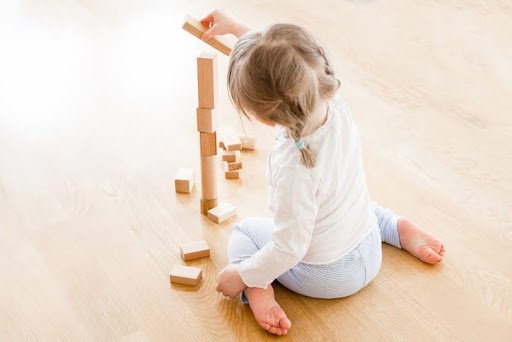
What is Sittervising?
HALEY LONGMAN
APR 18, 2024
Over the last few months, my son’s therapist has instituted an idea to use in our home called independent play—he does his thing, and myself or my husband stay nearby in the same room, doing work, or, more realistically, scrolling aimlessly on our phones or dozing off. And as it turns out, there’s a parenting term for this exact concept: it’s called sittervising, and I, for one, am totally on board.
The term “sittervising” was introduced—where else?—on social media circa 2021 by Susie Allison, a mom and former teacher who runs the popular Instagram account @busytoddler. Derived from the words “babysitting” and “supervising,” the trend has been picking up steam on TikTok more recently as more and more parents have caught on. Sittervising essentially means parents don’t need to entertain their kids at all times. Instead, the child plays on their own (or with a sibling) while the adults supervise from a short distance.
The benefits of sittervising are two-fold for both you and your little one:
Kids learn to master their independent play skills and explore their environment more freely
Parents sit down and take a breather, which helps to reduce stress and burnout
If the kids need help, you’re close enough to them but not too close that you’re hovering or micro-managing. Bonus: Sittervising works if you’re outside the home too. For example, letting your little one play on the playground at the park while you keep an eye on them from a bench nearby counts as sittervising. This also teaches kids how to interact with other kids without parental intervention.
I know what some of you may be thinking—”I’d feel so guilty just letting my kid play by themselves!” But the idea is not that you’re spending less time with your child; rather you’re not spending every waking moment entertaining them. Think about all the other things you’re doing daily with your kiddo already—getting them dressed for school, feeding them meals and snacks (but mostly snacks), reading to them at bedtime—a little break can do you both good.
“Playing with kids is one of the many ways we build relationships with them, but playtime doesn’t have to (and can’t!) consume the entire parenting day,” Allison of @busytoddler has said of sittervising.
Still, though, if you decide to jump on board the sittervising train, try not to let it happen all the time, because parent/child interaction is important for kids’ development. Plus, if a child is hurting himself or others or engaging in dangerous behavior, you’re going to want to step in.
What do you think about sittervising? Have you been doing this with your kids already without even realizing? Share your thoughts with us on social !
And if you enjoyed this article, sign up for our weekly newsletter below, with tips, tricks, and trends coming to your inbox every Sunday morning.



